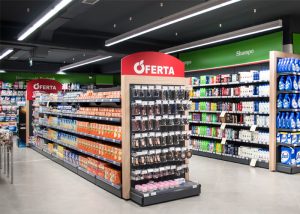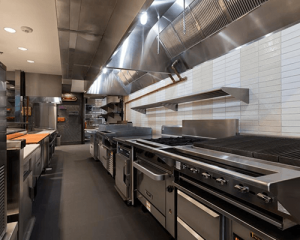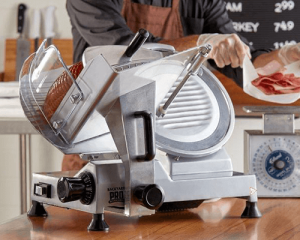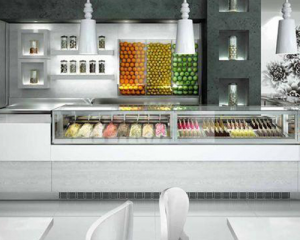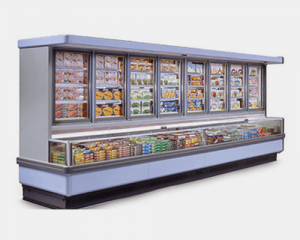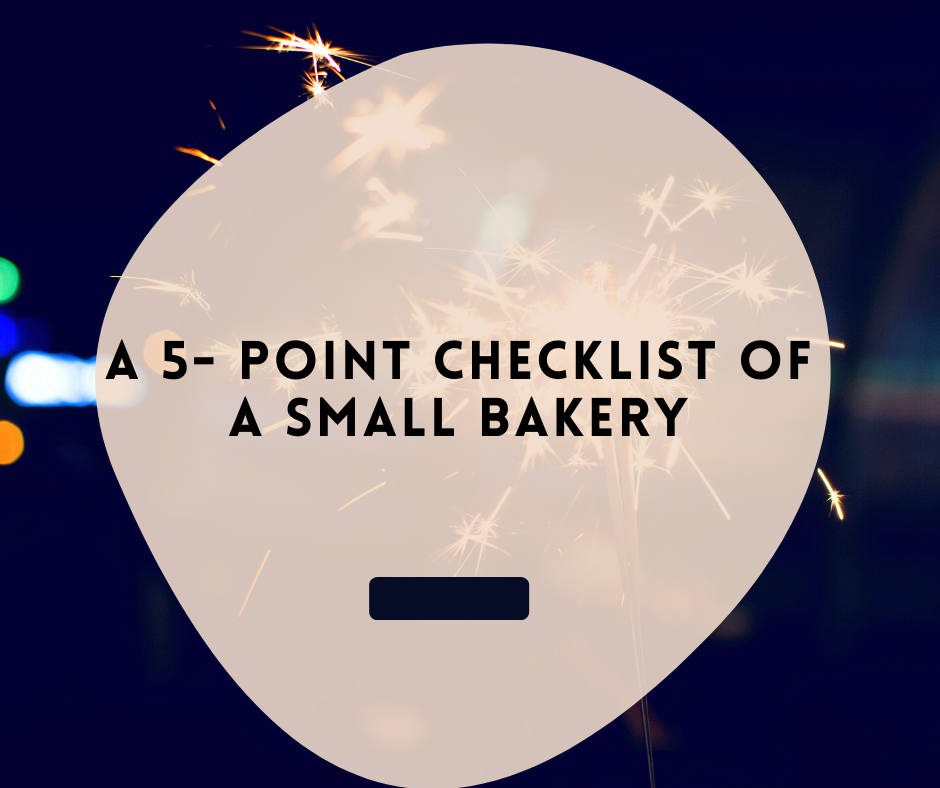Checklist of a Small Bakery- Oven, Mixer, Proofer
Do you like cakes, pastries, and cookies? starting your own bakery could be a profitable business, though It can be difficult and challenging as a starter.
4 Important Essentials for Small Bakery Equipment Startup
What kind of bakery do you wish for? Below is a 4 Important checklist of anything and everything you’ll need to know on tools or equipment needed to start up a bakery.
1. Oven
The most crucial equipment on this checklist needed to start up a bakery, whether a small bakery or a commercial bakery, is an oven, which is a necessity and required to run a successful bakery. Taking shortcuts on this will be at your own risk. Therefore, invest in a high-quality, temperature-controlled oven, that will not cause you any issues but gives you great value for your money.
This will save a lot of time if you have a quality, trustworthy and efficient oven that bakes at the temperature you specify. There’s no need to meddle with either the baking timings or keep an eye on the pastries to see if they’re done.
A Rotary and a Combi Oven combination will provide you with more versatility if you can’t have more than one oven.
2. Mixers
Customers can now choose from a variety of fresh, unprocessed, and delicious pastries, ranging from bread and cakes to biscuits, muffins, and pizza from bakeries. One of the secrets to their success, according to bakery experts, is having a dependable commercial mixer that yields the highest quality products. What they may not understand is that picking the best mixer is just as important as finding the perfect ingredients for the recipe altogether.
A baker’s commercial mixer must be tailored to his or her specific kitchen requirements and capabilities. Once this occurs, he or she will definitely see a significant improvement in productivity, efficiency, and less money spent on maintenance, repairs, and other expenses that could drive customers away and negatively affect their business’ bottom line over time.
Before buying a mixer, bakers should consider, assess, and explore the many varieties of delicacies they plan on making regularly. What kind of dough or batter do most of their recipes need, and how thick should it be? Will they bake unique bread, muffins, cookies, or a combination of all three?
Bakers must understand the differences between planetary mixers and spiral dough mixers to determine which is best for their kitchens and business’ operations. When diversity of use and robust mixing are sought, a planetary mixer is perfect. When preparing a handmade and crisper dough, however, a spiral dough mixer is the best option.
Below are types of mixers:
Spiral Dough Mixer
Even though spiral mixers are placed on the kitchen floor, space should always be considered before getting one. They’re perfectly suited to bakeries and kitchens that specialize in luxury bread and pizza.
Since spiral mixers rotate the basin in both directions, they guarantee correct dough consistency and well-blended ingredients. Spiral mixers are the ideal option when consistently producing high-quality bread is a priority. In comparison to planetary mixers, they may also produce much smaller amounts.
Because of the way the spiral hook spins to knead the dough, spiral mixers are ideal for mixing bread because they maintain the dough at a lower temperature. This prevents the dough from overheating or fermenting too soon, which might damage the yeast’s ability to activate. When making handmade bread, temperature control is indeed very vital because it must ferment slowly to come out perfectly.
One motor rotates the bowl, while another spins the spiral arm of the spiral mixer. The mixers are easier to handle than planetary mixers because they use a pulley system.
Planetary Mixers
Planetary mixers provide a wide range of options for bakers who want to produce a large number of different foods. While planetary mixers are fantastic for combining cookie components and kneading heavy dough, they could also be used to slice vegetables, mincemeat, grate cheese, create a batter, and whip light meringues, providing bakers more options. Due to this new versatility, bakers can branch out and offer customers options other than traditional baked foods like cakes and bread.
For best performance, planetary mixers require the right attachments and agitators. For bowl mixing, agitators such as whips, beaters, dough hooks, mixing paddles, whisks, and pastry knives are commonly used. Some planetary mixers have hub attachments such as slicers, graters, shredders, and meat choppers; these attachments enhance the mixer’s capabilities beyond mixing.
All planetary mixers have a single motor and a bowl that does not rotate. Planetary mixers are measured by the number of ingredients they can contain in their bowls, having capacities ranging from 0.5 to 140 quarts, adding to their versatility and flexibility.
Larger planetary mixers are floor standing, while smaller planetary mixers can be placed on a tabletop. Planetary mixers are an ideal choice for general-purpose kitchens, bakeries, and pizza shops. They are the most widely used commercial mixers on the market today.
3. Proofer
A Proofer oven is a type of oven that helps the dough to rise before baking, The proofer is one of the most significant pieces of equipment needed in a bakery. This step in the process necessitates highly specific temperature and humidity settings to boost yeast activity when fermenting dough pieces, and proofer ovens are the best way to achieve these. However, because they are highly specialized machines, you should be developed to perform routine maintenance on them.
The following are typical proofing conditions for high-quality yeast-leavened baked products:
Temperature: 95–110°F (35–43°C)
Relative humidity: 80–85%
Cycle time: 40–70 minutes
Type Of Variation
Standard and convection proofer ovens are the 2 most common types of ovens. Convection ovens use fans to circulate hot air throughout the interior, ensuring that the temperature is uniformly distributed. The fact that they don’t require any hassle with the pans is one of their key advantages. Standard ovens will require you to rotate the pans during the baking process to make sure the dough is evenly treated.
4. Dough Divider
The dough divider is an important piece of equipment used in a bakery. Its function is to help in rounding up the dough and volumetric division. Different types of pastry and bakery doughs exist, and sifting or rounding them is difficult manual labor. That is why dough dividers are so popular; they make the procedure easier by using a mechanical method. The dough divider’s mechanism is ideal for rounding, twisting, and cutting dough.
Types Of Dough Dividers
You should also be aware that there are various types of dough dividers available in the market. Anyone you choose is entirely dependent on the type of dough you’re working with. Always select the dough divider based on the amount of work required and the type of dough or pastry to be divided and sorted. It is recommended that you select a dough divider that comes with a comprehensive toolset for this purpose. This makes it ideal for both large and small-scale bakeries, as well as other food units such as:
- Catering
- Hospitality
- Other similar industries
The stainless-steel equipment used in most dough dividers is industry standard. The stainless-steel dough divider improves the cutting process because there is no chance of rusting or staining when dividing dough or pastry. Dough dividers have proven to be a game-changer for those in the bakery and pastry industries because they eliminate the need to spend hours winding, rounding, and cutting dough by hand. This piece of equipment handles everything, allowing you to concentrate on other important matters. You can use a variety of other pieces of equipment in conjunction with the dough divider. This will allow you to maintain higher quality standards, reduce physical efforts, and achieve greater efficiency and productivity every time. There are various dough divider models available that can help you improve the quality of your production.
Things To Check When Choosing a Dough Divider
There are various types of dough dividers in the market, and it is critical that you select the correct dough divider for your dough. This will entail following the proper procedure and putting it into action, which should be done as follows:
Choosing The Right Fit
When it comes to dividing, cutting, and rounding dough, it doesn’t matter what type of dough you’re working with; the most important thing is accuracy. In fact, you should look for a dough divider that is a perfect fit. If you’re working with high-moisture doughs, you’ll need a dough divider that can move at a faster speed, but this may compromise accuracy.
Moisture Levels are Essential
When selecting a dough divider, make sure that the relationship between accuracy and moisture levels is not overlooked. When there is a lot of moisture in the dough, the dough’s weight accuracy may suffer. If you are working with moist dough, you should use regular piston dividers, which are designed to handle high dough yields.
Increased Weight Accuracy
Choose a dough divider that provides greater weight accuracy at astronomical speeds. There are very few dough dividers that can handle this, but there are options. You want a dough divider with adjustable rounding and dividing systems. This will result in more pressure when dividing and greater weight accuracy with all types of dough.
System For Weighing
You should also look for a dough divider with a check weighing system, which provides greater accuracy and allows you to adjust the dough in seconds. This improves weight accuracy and allows bakers to avoid giving away products or undercharging customers. The machine can adjust quickly, allowing you to manage greater scaling accuracy.
Scaling Accuracy
It is critical that you purchase a dough divider with exceptional scaling accuracy, as this will assist the baker in meeting their goal. That’s where a dough divider that can deliver the tiniest weights comes in handy. You can sometimes get away with scaling accuracy if the structure of the dough is consistent. With a dough divider, the ability to quickly adjust is invaluable.
Performance Dependability
Regarding dough dividers, one of the major concerns you should know is that they are more reliable and perform better. Each day, there are various types of dough dividers with distinct functions. You must look at various recipes before deciding on the type of dough you want. This is where a dough divider with precise motion control comes in handy because it enables you to control and divide pressure.
Matching Speeds
Responsive machinery
Greater versatility
5. Bread Slicer
The bread slicer is an essential piece of equipment in bakeries where bread is the primary focus. Having this equipment makes packing and arranging bread much easier. Based on your requirements, slicers can be cut into a variety of sizes and styles.
Bread slicers can save you and your customers time and effort by slicing bread for you. Each time, the slices come out evenly, letting you know that you’re getting the most out of each loaf. You’ll also protect yourself and your customers from knife injuries.
The two most common varieties of commercial bread slicers are freestanding and countertop. When choosing a slicer, the layout of your bakery should be considered. If you have limited counter space, a standalone machine is the way to go. They’re easily accessible and equipped with casters to keep them stable on the floor. Countertop bread slicers, which is located on your counter, is primarily used for smaller operations

